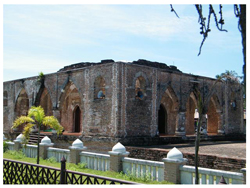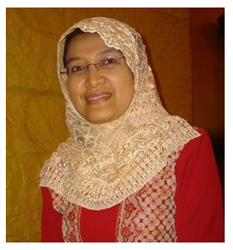The nightmares and hope six years after Krue Se massacre
 By Waelimoh Pusu
By Waelimoh Pusu
April 28 of this year marked the sixth anniversary of the Krue Se mosque massacre – a tragic day of bloodletting in which 108 people, mostly Thai-Malay Muslims, were killed.
Violence started at dawn when hundreds of Thai-Malay Muslims, armed only with knives and wooden clubs, simultaneously launched coordinated attacks on more than 10 security checkpoints in Yala, Pattani and Narathiwat provinces. Security forces responded with deadly weapons resulting to a daylong battle which culminated in the storming of Krue Se mosque in Pattani where more than 30 ‘”suspected militants” were holed up.
When the bloodletting finally end in the evening, a total of 108 people, including an officer, died. About 20 others were wounded and arrested.
Six years afterward, the tragedy seems to have been forgotten from the memory of most people living outside the deep South. But for families of the victims and many others in the three southernmost provinces, the violent incident seems to be still fresh in their memory. Many of them have refused to walk or travel past the mosque on April 28.
Because all the dead victims with the exception of the police officer were branded as militants, their families were each given only 20,000 baht as funeral costs without any other financial compensation. Although some of these families received financial support from charitable organizations, the support was inadequate and inconsistent. Lately however, the Abhisit government has decided to step in to provide support for these families.
Dr Petdao Tohmeena, director of the 15th mental health centre whose jurisdiction covers the three southernmost provinces, admitted that several families of the dead victims are living in poverty with some of them cannot even afford to fix leaked roofs.
“What is worrisome is that the people are sick of the frequent visits of officials who came to their communities to get information and to give them hope and then all of them disappeared,” said the doctor. She cited educational support, saying that of the 17 families she have visited only half of them said they have received educational support.
“Thus, it was not surprising that when I visited the families I was tersely asked why I came again. This was because they were disappointed with the authorities who have failed them repeatedly,” said Dr Petdao.
 She mentioned a case about a woman, the breadwinner of the family, who was told by officials to prepare all the necessary documents in two days so she would be entitled to some sort of scholarship. The woman spent two days running around to get the papers but, afterward, nothing happened, she said.
She mentioned a case about a woman, the breadwinner of the family, who was told by officials to prepare all the necessary documents in two days so she would be entitled to some sort of scholarship. The woman spent two days running around to get the papers but, afterward, nothing happened, she said.
The Muslim doctor said she wanted state agencies dealing with Thai-Malay Muslim people to change their attitude towards families of the victims because the families had nothing to do with the incident six years ago.
In light of desperation and seeming hopelessness affecting most families, Dr Petdao cited the case Ms Rosaning Saleh, 24, a widow whose husband was killed in the Krue Se mosque tragedy.
Despite losing her husband, she said that Ms Rosaning was never discouraged. “She is strong and has been working hard to raise her child. On top of that, she has helped the other families who are suffering the same fate like her.
Dr Petdao said that Ms Rosaning was a role model of how a small woman who rarely played a role in her community has transformed herself into a representative of her community and can speak on behalf of the other people. The woman, she said, has aspired to become a teacher – a dream that she will be fulfilled in the near future.
------------------------------------------------------------
Caption :
1 Krue Se mosque in Pattani
2 Dr Petdao Tohmeena
